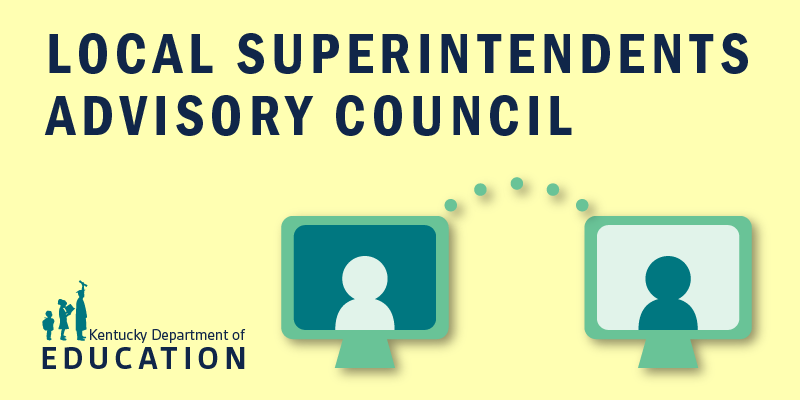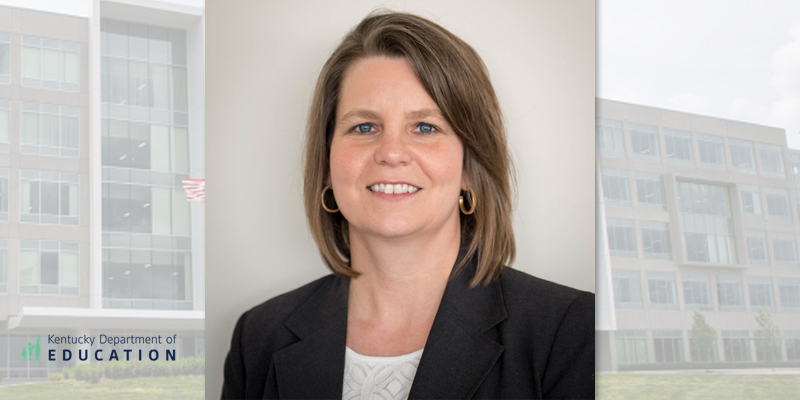
The Kentucky Department of Education’s (KDE’s) Teachers Advisory Council (TAC) met June 6 to discuss morale among education professionals and changes to academic standards.
The TAC is designed to help improve the educational landscape in Kentucky by providing the state’s education commissioner with direct input from classrooms.
Teacher Morale
During the meeting, Associate Commissioner Byron Darnall with KDE’s Office of Educator Licensure and Effectiveness reiterated the department’s commitment to including teacher voice in conversations about teacher morale. KDE is considering options for improving teacher morale and plans to partner with members of the TAC to do so.
“Please know that those conversations are persistent and constant in terms of doing our best to represent the voice of you all and your peers across the state,” he said. “We are always available to you for any type of conversation, any type of feedback that you are willing to offer. … We’ll be more than happy to support you all.”
Jamaal Stiles, the TAC chair and a teacher in Washington County, provided space for members to voice their concerns and ideas.
“This will be an ongoing conversation that we have over the next several months,” he said. “We’ll see what you think about the issue, see if we have some common things that we can address.”
Kentucky Academic Standards (KAS)
Branch Manager Thomas Clouse and Division Director Chrystal Rowland with KDE’s Division of Program Standards in the Office of Teaching and Learning joined to highlight changes and revisions involving the Kentucky Academic Standards (KAS) for Science and Social Studies.
According to Clouse, the science standards were reviewed and revised per the process established in Kentucky Revised Statute (KRS) 158.6453, which requires KDE to periodically update academic standards across disciplines.
“The process involves having advisory panels and a review committee, made up of educators from across the state, come together to review and revise the standards,” Clouse said.
In the revision of the KAS for Science, the teachers focused on building clarity and adding supports for teachers within the document.
“The need to build clarity was a common theme from the public feedback, as well as in the focus groups,” he said.
Clouse said the updated architecture is simpler to navigate, with performance expectations, examples and assessment boundaries. Six performance expectations were modified to add coherence and clarity across the progression.
Rowland said the social studies standards changed to comply with the Teaching American Principles Act, which passed during the 2022 legislative session. KRS 158.196 requires 24 historical documents be taught to Kentucky’s students, including the Mayflower Compact, the Monroe Doctrine, numerous supreme court opinions and historical speeches.
Additionally, Rowland discussed the development of KDE’s upcoming module titled “Supporting Students in Using Evidence.” When published, this module will support educators as they implement the social studies standards. While the scope of this module is intended to support educators when implementing the Using Evidence standards of the KAS for Social Studies, the components of this module are designed to empower educators on how to support students when using sources.
In other business:
- John Paise, a program consultant in KDE’s Office of Educator Licensure and Effectiveness, Division of Educator Recruitment and Development, talked with the group about 2023 Educators Rising Signing Day.
- KDE Director of Early Literacy Christie Biggerstaff went over Phase 2 of Language Essentials for Teachers of Reading and Spelling (LETRS), which is now open for registration. For more information, see the LETRS for K-5 Educators Phase 2 Registration form or the LETRS for Administrators Phase 2 Registration form.
- Whitney Hamilton with KDE’s Office of Teaching and Learning, Division of Program Standards, discussed writing across academic disciplines. KDE’s Writing Across Disciplines document contains specific guidance for writing of multiple purposes, including using writing to instruct and for students to demonstrate their knowledge.
The group will meet again on Sept. 7.




Leave A Comment